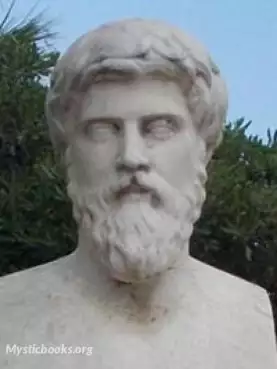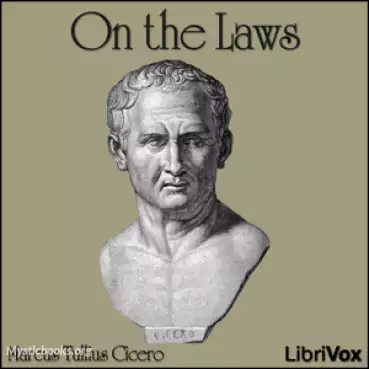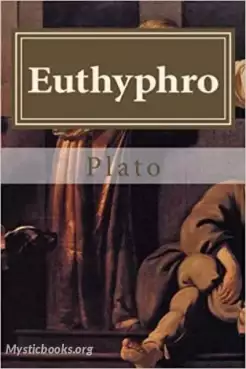
The Morals (Moralia), Book 1
by Plutarch
'The Morals (Moralia), Book 1' Summary
The Moralia include On the Fortune or the Virtue of Alexander the Great, an important adjunct to his Life of the great general; On the Worship of Isis and Osiris, a crucial source of information on Egyptian religious rites; and On the Malice of Herodotus (which may, like the orations on Alexander's accomplishments, have been a rhetorical exercise), in which Plutarch criticizes what he sees as systematic bias in the Histories of Herodotus; along with more philosophical treatises, such as On the Decline of the Oracles, On the Delays of the Divine Vengeance, On Peace of Mind and lighter fare, such as Odysseus and Gryllus ("Bruta animalia ratione uti"), a humorous dialog between Homer's Odysseus and one of Circe's enchanted pigs. The Moralia were composed first, while writing the Lives occupied much of the last two decades of Plutarch's own life.
Some editions of the Moralia include several works now known to be pseudepigrapha. Among these are the Lives of the Ten Orators (biographies of the Attic orators based on Caecilius of Calacte), On the Opinions of the Philosophers, On Fate, and On Music. One "Pseudo-Plutarch" is held responsible for all of these works, though their authorship is unknown. Though the thoughts and opinions recorded are not Plutarch's and come from a slightly later era, they are all classical in origin and have value to the historian.
Book Details
Authors

Plutarch
Greece
Plutarch was a Greek Middle Platonist philosopher, historian, biographer, essayist, and priest at the Temple of Apollo. He is known primarily for his Parallel Lives, a series of biographies of illustr...
Books by PlutarchDownload eBooks
Listen/Download Audiobook
- Select Speed
Related books

History of the Conquest of Mexico by W.H. Prescott
William H Prescott was an American historian whose sight had reduced him to near blindness, and who had never visited Mexico, yet researched and recon...

On the Law by Marcus Tullius Cicero
The De Legibus (On the Laws) is a dialogue written by Marcus Tullius Cicero during the last years of the Roman Republic. It bears the same name as Pla...

The Inner Chamber and the Inner Life by Andrew Murray
Here is a book of devotions that will bring joy and strength. Its chapters provide vital keys to living and enjoying the Christian life. It covers imp...

Library of the World's Best Literature, Ancient and Modern, volume 09 by Various
An extensive collection of literature from various periods and cultures, ranging from ancient to modern times. This volume, part of a 46-volume set, f...

Quit Your Worrying! by George Wharton James
This book, originally published in 1910, offers a practical guide to overcoming worry and achieving a state of mental tranquility. Drawing on his pers...

Nerves and Common Sense by Annie Payson Call
In a world where stress and anxiety often overpower our daily lives, Annie Payson Call's "Nerves and Common Sense" emerges as a guiding light through...

The Spinster Book by Olive Green, Myrtle Reed
A cross between guidebook and social commentary, The Spinster Book gives clever and humorous insights on topics such as courting, handling men and wom...

Damn! A Book of Calumny by H.L Mencken
In Damn! A Book of Calumny, H.L. Mencken gives his opinion on a wide variety of subjects ranging from William Jennings Bryan, through Classical Music,...

Euthyphro by Plato (Πλάτων)
Euthyphro by Plato, is a Socratic dialogue whose events occur in the weeks before the trial of Socrates (399 BC), between Socrates and Euthyphro. The...

Station Life in New Zealand by Mary Anne Barker
STATION LIFE IN NEW ZEALAND is a fascinating account of the time Lady Mary Anne Barker lived on a sheep station on the south island of New Zealand. It...
Reviews for The Morals (Moralia), Book 1
No reviews posted or approved, yet...